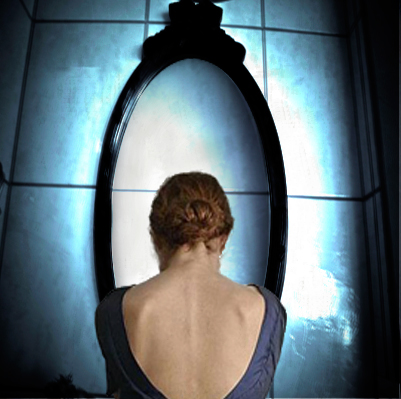The portrait of Dorian Gray has be photoshopped.
 Thursday, March 3, 2011 at 1:36PM
Thursday, March 3, 2011 at 1:36PM 
by Jeanne Chinard
"How sad it is!" murmured Dorian Gray with his eyes still fixed upon his own portrait. "How sad it is! I shall grow old, and horrible, and dreadful. But this picture will remain always young ... If it were only the other way! If it were I who was to be always young, and the picture that was to grow old! ... I would give my soul for that!" (“The Picture Of Dorian Gray” by Oscar Wilde)
How could Oscar Wilde have dreamed that his words, written more than a century ago, would still resonate? But today, he wouldn’t need a painter to work his dark magic, he would only need Photoshop®. When you see digital avatars looking more realistic than real women, you know you’re in trouble.
It is no secret that there is an epidemic of retouching in all still media. You see a plethora of oddly smooth faces, arms without muscles and anatomically impossible attachments of limbs to bodies. Faces for cosmetic products don’t have an expression line in them. Or any expression for that matter. It even makes the most recognizable celebrity, unrecognizable. Isn’t that why you pay so much to use them?
The tired mantra that marketers always use is that “women don’t want to see older women in advertising.” Baloney. Show me the research. What were the questions? And who were the women? You can get anything out of a focus group you want. Women want women to look good when they are representing a product. That doesn’t mean they want them to look flawless or like soulless mannequins.
I will never forget a very senior executive art director who argued nastily with me because I thought he was over retouching a celebrity model. “Well,” he insisted, you have to. If you are over fifteen you look like a f*#!! hag.” The model was 22.
So the question is, is the lack of reality in the absurd way women are portrayed and retouched actually driving women away from products that reduce the signs of aging? How many times and how many ways can marketers tell women they are just not good enough? How do you think that makes us feel?
Perhaps more important, what are the ethical implications of the drive to look inappropriately young? What is it doing to our young girls? Have marketers looked in the mirror themselves, lately? They may wish they had Photoshop® handy.


Reader Comments